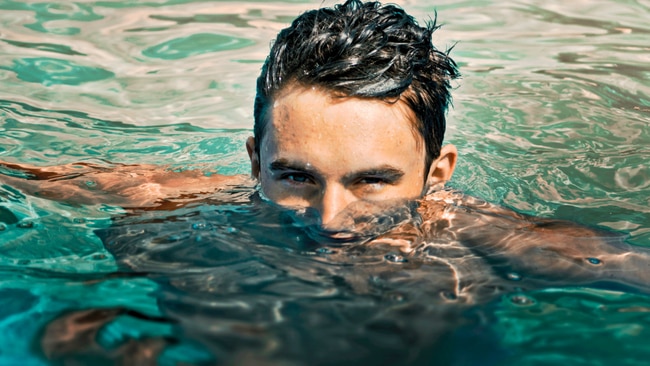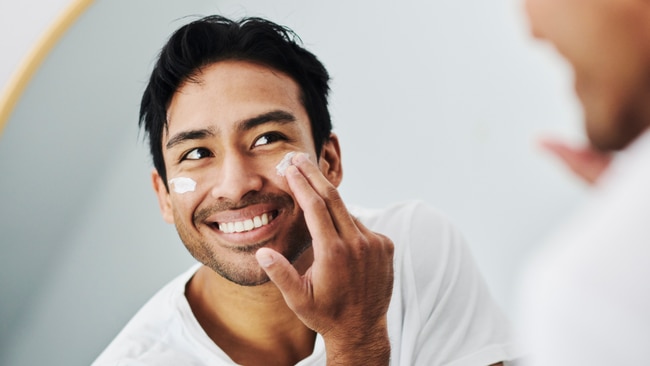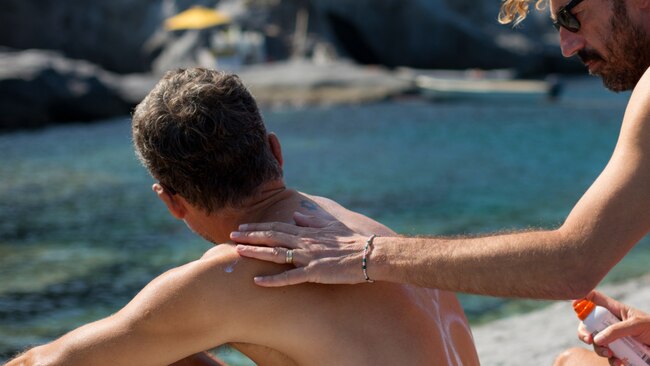Research says almost twice as many men as women die of melanoma
It is the second most common cancer in Australian men

Cancer
Don't miss out on the headlines from Cancer. Followed categories will be added to My News.
This Men's Health Week we're focusing on the startling reality of melanoma - affecting twice as many Australian men than women. Body+Soul spoke with skin cancer physician Dr Scott McGregor and elite surfers about how to screen your men for creamy excuses and get them slip, slop slapping every day of the year.
Unfortunately, Australia leads the world in skin cancer rates. Skin cancer, dubbed our 'national cancer,' is estimated to affect two-thirds of Australians at some point in their lives.
Skin cancer, which often begins as an inconspicuous growth, can quickly spread to other body parts. The culprit? Ultraviolet (UV) radiation from the sun causing mutations in skin cells. There are three key types of skin cancer: Basal Cell Carcinoma (BCC), Squamous Cell Carcinoma (SCC), and the most lethal, Melanoma.
According to the Australian Institute of Health and Welfare, melanoma is expected to kill nearly twice as many Australian men as women. It is the second most common cancer in Australian men, after prostate cancer. Yet, men's rates of sunscreen use and skin checks have stagnated, if not declined.
Like what you see? Sign up to our bodyandsoul.com.au newsletter for more stories like this.
A whopping 95 per cent of melanomas arise from UV radiation overexposure. Catch it early, and the survival rate is promising, with 90 per cent of melanomas able to be curbed by surgery. Yet, Aussie men aren't proactive when it comes to sun safety.
A survey of more than 2,000 people conducted in May 2023 by Adore Beauty found that only 56.8 per cent of Australians say they wear sunscreen every day. The number is even more startling amongst the male population: less than half of Aussie men (49 per cent) regularly seek shade during summer, and according to the Cancer Council Australia, a mere 29 per cent consistently reach for sunscreen.
Research conducted by the Australasian College of Dermatologists further shows the disconnect. According to their survey, despite 82 per cent of men having at least one known skin cancer risk factor, such as fair skin or outdoor work, a scant one-third consider themselves at high risk.
This includes Mark Richards, a legendary four-time world surfing champion and Australian twin-fin maestro who now urges Aussie gents to get regular skin cancer screenings after his own brush with the disease.
“Luckily, I got them early enough,” he admits, recalling having a spot on his arm removed just last year and three skin cancers removed in 2021, which his son discovered as a mole with a dark dot on his back.
Richards, who grew up in the 1960s when sunscreen was barely a thought, now embraces a more sun-safe mindset. "I'm much more aware of the dangers now," he confesses. His sun-protection strategy? I’ll always surf in a wetsuit or Lycra sun shirt, wear a surf hat and use sunscreen every time I’m in the sun and add zinc to my nose and cheeks if I’m in the surf,” asserts Richards.

While people who grew up in Australia are, by and large, well aware that there is a risk of skin cancer, there is still a disconnect around when and where the risk is most prevalent – namely, always.
CEO of Skin Smart, Jane Homberger says "Some of our worst sunburns happen on dull and overcast days. In the past, we referred to these cases of sunburn as ‘wind burn’, but we now know that 80 per cent of the sun's UV radiation can penetrate light cloud cover.
"Wearing sunscreen should be like brushing your teeth – it’s an essential part of your daily routine to ensure your health is protected."
Dr Scott McGregor, a seasoned skin cancer physician who has seen the tragic consequences of skin cancer, strongly encourages men to adopt responsible sun habits and schedule yearly skin check-ups.
“Wear sunscreen daily on all exposed areas and reapply as directed. Get an annual skin check and learn to self-check your skin," he says. "Don’t be afraid to get a professional opinion on anything you are uncertain about. Talk to your colleagues and mates about health!”
Increasing the frequency of conversations around health and sun protection is key for young men in particular, as in Dr McGregor's experience, they are often reluctant to apply sun protection or prioritise regular skin examinations, despite the fact that they are the ones who enjoy the great outdoors the most.
He calls it a "perfect storm" in which men are both more prone to skin cancers and less likely to take preventative measures.

This was a reminder We Are Feel Good Inc. co-founder and ex-pro surfer Jake Paterson received firsthand, after a brush with skin cancer that came too close for comfort.
“A couple of years ago I had this scab on my head that never seemed to heal. Not having hair doesn’t help with sun damage on the top of my head, but my wife kept bugging me to go get checked. My local doctor had one look and said it had to come out," he says. "12 stitches later and a big hole in my head... but the operation went well.”
His advice? “Get checked at least once a year, twice is better. Skin checks are the way to go and if anything looks suss, just get it checked out. It’s better to be safe than sorry!”
Richard is in agreement but says there is a way to go before Aussies, particularly young men, are up to scratch with their sun safety.
“Unfortunately, I don’t think young people take sun protection seriously," he says "But at some point, it catches up with you! Getting a tan now leads to wrinkles, sun damage and melanoma later in life.”
Messaging around the risk of sunburn and skin damage throughout cooler seasons also seems to have been lost along the way. In Australia, the majority of the country experiences an average UV index of 3 and above – even in winter.
“In Australia, we’re often reminded to ‘slip, slop slap’ during the summer months, but the reality is it’s a year-round need," says Adore Beauty’s co-founder Kate Morris, who is adamant that Australians wear sunscreen every single day of the year, no matter the weather or the season.
Dr McGregor agrees, saying "50+ sunscreen is the best choice, but ideally the best sunscreen for you is the one you will use every day.”

Skin cancer risk is especially high for those who have a history of sunburn, chronic sun exposure, or a family history of skin cancer, and Dr McGregor urges people with fair skin or those living in at-risk climates to be extra cautious, saying they are "more likely to get skin cancer."
All Aussies should also scrub up on their knowledge around signs of melanoma. Keep an eye out for "An existing mole that changes in size, shape, colour or feel, any new moles, or any skin lesion that is persistent and especially if irritated or bleeding," says Dr McGregor. "A common presentation for non-melanoma skin cancers of the face for example is a “pimple” that won’t go away and slowly grows over months.”
This Men's Health Week, Dr McGregor is urging Australian men to book in for a skin check, saying “The bottom line is if you have something on your skin that you are unsure about, get it checked. If you have never had a skin check, then get one done, no matter what type of skin you have.
"An annual skin check with a qualified doctor is recommended in Australia, as well as regular self-checks. A skin check isn’t just checking your for skin cancer, it also allows the doctor to educate and advise regarding your relative risk based on your skin type, family history, past exposure, current habits et cetera."
Prevention is always better than cure, so as well as advocating for annual skin checks with your GP or skin cancer specialist, the best thing all Aussies can do is mitigate the risk in the first place.
“One of the most important things to know about melanoma is that it can be prevented!" says Dr McGregor.
"Every time you burn, your chances of developing melanoma increase. You should know that when your skin starts to turn pink when out in the sun, you’re already sunburnt — so it’s important to take precautions beforehand.
"Yes, the old slip, slop, slap, seek and slide is still the way to go."
Originally published as Research says almost twice as many men as women die of melanoma


